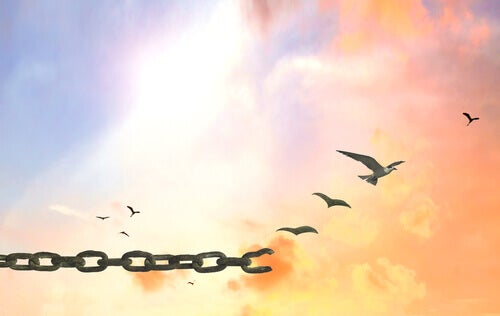All about Freedom of Expression

For democracy, dialogue, and development to thrive, society needs a critical element: freedom of expression. This is because it’s a universal right that everyone should enjoy. Thus, all human beings must have the right to express their opinions and express themselves freely.
According to the United Nations (UN), freedom of expression is a human right and it’s in article 19 of the Universal Declaration of Human Rights. It establishes the following:
“Everyone has the right to freedom of opinion and expression; this right includes freedom to hold opinions without interference and to seek, receive and impart information and ideas through any media and regardless of frontiers.”
The goal of this article is to analyze and argue that freedom of expression is the basis of any democratic society. It’s obviously recognized in the Universal Declaration of Human Rights. In addition, it’s a part of the International Covenant on Civil and Political Rights and detailed in the Human Rights Committee.

What exactly is freedom of expression?
Freedom of expression means that all human beings have the right to express themselves, without being harassed. Also, that all must be able to access information and transmit it without barriers.
Thus, this right is also about the freedom of the press defined as “the transmission of information through the media without the State exercising control prior to the issuance”.
Therefore, freedom of expression protects:
- First of all, all political, religious, scientific, moral, and historical opinions.
- Any form of expression, be it oral or written words or images, sign language, and artistic displays.
- All means of information dissemination, such as newspapers, posters, clothing, legal allegations, etc.
- Any opinion or idea of interest to people regarding their own and public affairs, human rights, journalism, cultural and artistic expression, and religious and political thought.
What are the necessary conditions to exercise this right?
For there to be real and effective freedom of expression, people must be able to:
- Express and comment on any matter, by any means.
- Seek, receive, and disseminate information. This is because, without information, you can’t exercise the right to express yourself freely.
- Access information from the State because it’s essential for the demand for effective policies, the defense of human rights, and the fight against corruption.
- Have access to diverse and independent media, as the monopoly or oligopoly of information conspires against equal opportunities, diversity, and plurality.
- Also, to have effective protection for journalists, avoiding all kinds of direct or indirect pressures.
- Access academic freedom so students, teachers, and researchers can freely seek, transmit, and develop knowledge. Thus, defending a free-thinking model that deters indoctrination.
In addition, let’s emphasize that freedom of expression also protects the right to conscientious objection when someone speaks. For example, in relation to any “official” legislative ideology or with different obligations, such as providing military service.
The concept of censorship
Anti-democratic regimes often threaten freedom of expression through various censorship tools, defined as the use of power to control freedom of expression. Thus, censorship can be explicit (by law) or less obvious (for example, social taboos).
Thus, one of the most radical ways of restricting freedom of expression is prior to censorship, or the censorship of certain contents before one can publish them.
The expression must not be subject to prior censorship, although one can regulate it with subsequent responsibility. For instance, nobody can keep a person from expressing themselves, even if they can receive a fine for their messages.

Limits of freedom of expression
Consequently, it’s clear that the right to freedom isn’t an absolute right. Also, legislation can forbid a person from inciting crime or violence and force them to apologize for hate and discrimination. Thus, freedom of expression has limits as soon as it conflicts with other people’s rights or values.
At this point, let’s highlight the difficulties of designing the line that separates the boundaries between legitimate and non-legitimate expression. Those whose sole purpose is to protect the dignity and human rights of those limits with autocratic features that seek to limit a person’s right to express themselves freely.
For democracy, dialogue, and development to thrive, society needs a critical element: freedom of expression. This is because it’s a universal right that everyone should enjoy. Thus, all human beings must have the right to express their opinions and express themselves freely.
According to the United Nations (UN), freedom of expression is a human right and it’s in article 19 of the Universal Declaration of Human Rights. It establishes the following:
“Everyone has the right to freedom of opinion and expression; this right includes freedom to hold opinions without interference and to seek, receive and impart information and ideas through any media and regardless of frontiers.”
The goal of this article is to analyze and argue that freedom of expression is the basis of any democratic society. It’s obviously recognized in the Universal Declaration of Human Rights. In addition, it’s a part of the International Covenant on Civil and Political Rights and detailed in the Human Rights Committee.

What exactly is freedom of expression?
Freedom of expression means that all human beings have the right to express themselves, without being harassed. Also, that all must be able to access information and transmit it without barriers.
Thus, this right is also about the freedom of the press defined as “the transmission of information through the media without the State exercising control prior to the issuance”.
Therefore, freedom of expression protects:
- First of all, all political, religious, scientific, moral, and historical opinions.
- Any form of expression, be it oral or written words or images, sign language, and artistic displays.
- All means of information dissemination, such as newspapers, posters, clothing, legal allegations, etc.
- Any opinion or idea of interest to people regarding their own and public affairs, human rights, journalism, cultural and artistic expression, and religious and political thought.
What are the necessary conditions to exercise this right?
For there to be real and effective freedom of expression, people must be able to:
- Express and comment on any matter, by any means.
- Seek, receive, and disseminate information. This is because, without information, you can’t exercise the right to express yourself freely.
- Access information from the State because it’s essential for the demand for effective policies, the defense of human rights, and the fight against corruption.
- Have access to diverse and independent media, as the monopoly or oligopoly of information conspires against equal opportunities, diversity, and plurality.
- Also, to have effective protection for journalists, avoiding all kinds of direct or indirect pressures.
- Access academic freedom so students, teachers, and researchers can freely seek, transmit, and develop knowledge. Thus, defending a free-thinking model that deters indoctrination.
In addition, let’s emphasize that freedom of expression also protects the right to conscientious objection when someone speaks. For example, in relation to any “official” legislative ideology or with different obligations, such as providing military service.
The concept of censorship
Anti-democratic regimes often threaten freedom of expression through various censorship tools, defined as the use of power to control freedom of expression. Thus, censorship can be explicit (by law) or less obvious (for example, social taboos).
Thus, one of the most radical ways of restricting freedom of expression is prior to censorship, or the censorship of certain contents before one can publish them.
The expression must not be subject to prior censorship, although one can regulate it with subsequent responsibility. For instance, nobody can keep a person from expressing themselves, even if they can receive a fine for their messages.

Limits of freedom of expression
Consequently, it’s clear that the right to freedom isn’t an absolute right. Also, legislation can forbid a person from inciting crime or violence and force them to apologize for hate and discrimination. Thus, freedom of expression has limits as soon as it conflicts with other people’s rights or values.
At this point, let’s highlight the difficulties of designing the line that separates the boundaries between legitimate and non-legitimate expression. Those whose sole purpose is to protect the dignity and human rights of those limits with autocratic features that seek to limit a person’s right to express themselves freely.
All cited sources were thoroughly reviewed by our team to ensure their quality, reliability, currency, and validity. The bibliography of this article was considered reliable and of academic or scientific accuracy.
- Berlin, Isaiah (2004) “Dos Conceptos de Libertad”. En Sobre la Libertad. Ed. H. Hardy, y Trad. J. Bayón, 205-255. Madrid: Alianza Editorial.
- Habermas, Jürgen (2010) “The concept of human dignity and the realistic utopia of human rights” Methaphilosophy v. 41-4, pp. 464-480.
- Nussbaum, Martha C. (2007) Las Fronteras de la Justicia. Trad. Ramón Villa Vernis y Albino Santos Mosquera. Barcelona, Paidós.
This text is provided for informational purposes only and does not replace consultation with a professional. If in doubt, consult your specialist.







